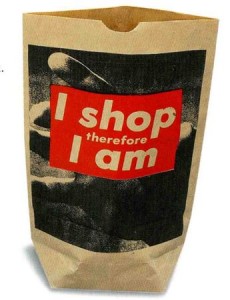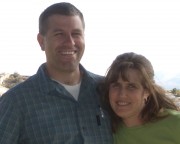Consumption is a deadly disease. We eat up and hoard those things that are supposed to bring us happiness and satisfaction, but never do.
 Economies of demand promote consumption. In the aftermath of 9/11 we were instructed by our President and the mayor of New York to be American and “go shopping.”
Economies of demand promote consumption. In the aftermath of 9/11 we were instructed by our President and the mayor of New York to be American and “go shopping.”
Economies based in consumption and demand will eventually devour themselves.
Interestingly, consumption is also a fitting older English term for the process of death from tuberculosis:
“In the past, tuberculosis has been called consumption, because it seemed to consume people from within, with a bloody cough, fever, pallor, and long relentless wasting.”
Does this sound like the process we are facing as a country?
We consume time by filling it with inane or harmful entertainment.
We consume our money on ever-depreciating goods that, although they provide us with ease of life, we don’t need the newest and most improved every two years (if we wait that long).
We consume our labor and talents on that which is of “no worth” and cannot “satisfy.”
Until we change our habits of how we use our time, money, and talents from consuming them to using them to contribute to strengthening communities, families, and self, we will, as a society consume ourselves to death through a process of “long relentless wasting.”
How do we change our ways of using the resources we have?
Austerity forces us to reconsider our economic decisions. However, we don’t have to wait until our options are forcibly limited to change from consumption and “long relentless wasting” to prosperity and plenty.
One intitial change is to see the resources we have possession of as gifts of Nature or of God.
If we see them in this way, we treat them as stewards would: wisely. Stewards realize that they are accountable to something greater than themselves for the distribution, use and improvement of their “resources-on-loan.”
As stewards, our usage decisions will be more appropriate as we nurture our labor, our money, and our time instead of selfishly exploiting those resources and the resources of others.
In contrast, if we see resources as things we own outright, independently of God and Nature, we quickly develop the tendency to exploit them and abuse them and waste them.
If we continue to prize ownership of stuff as a primary end for human existence, our society will suffer death by consumption in all its wasting and internal destruction.
Let us make the shift from an ownership mentality to a stewardship mentality that promotes a healthy economy based on prosperity, cooperation, and responsibility to self, to God, to Nature and to others.
****************
 Mike Wilson received his B.S. degree in Chemistry from Brigham Young University and pursued graduate work at the University of California, San Diego, where he earned a M.S. degree in Biomedical Sciences prior to obtaining his M.D. at the UCSD School of Medicine.
Mike Wilson received his B.S. degree in Chemistry from Brigham Young University and pursued graduate work at the University of California, San Diego, where he earned a M.S. degree in Biomedical Sciences prior to obtaining his M.D. at the UCSD School of Medicine.
He lives in Cedar City, Utah with his wife Jenni and their six children and practices emergency medicine in St. George, Utah while working on a Ph.D. in Constitutional Law at George Wythe University. He is also an Associate Mentor at GWU.
Mike’s passion is promoting idea that the common man has power and capacity to affect grand change in the world through true principles of love, goodness, and virtue. Because of his Jeffersonian trust in the common man, he considers himself a “little d” democrat (an ideal, not a political party).






Speak Your Mind
You must be logged in to post a comment.